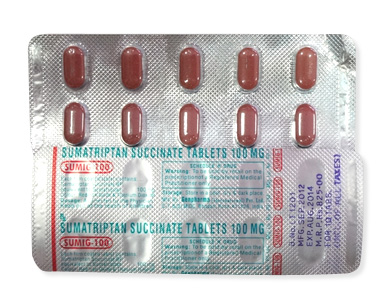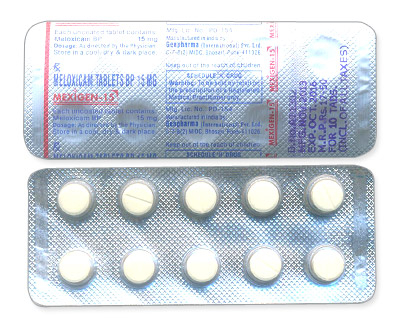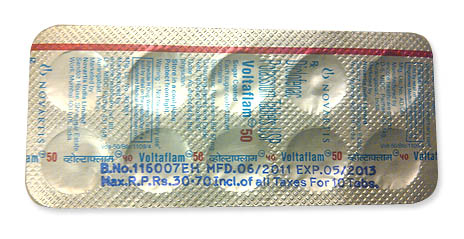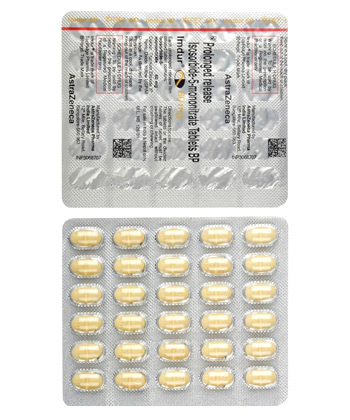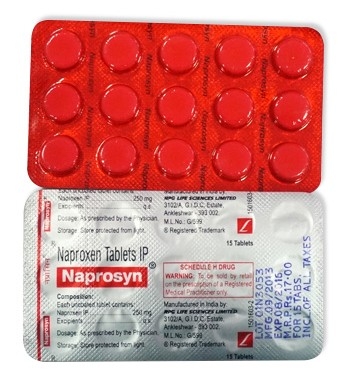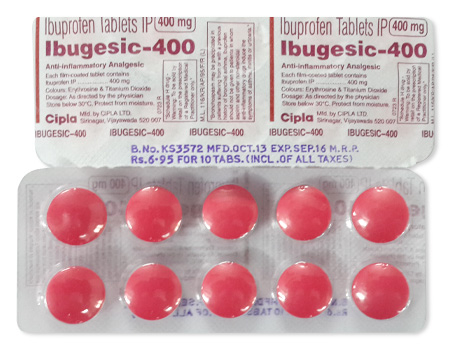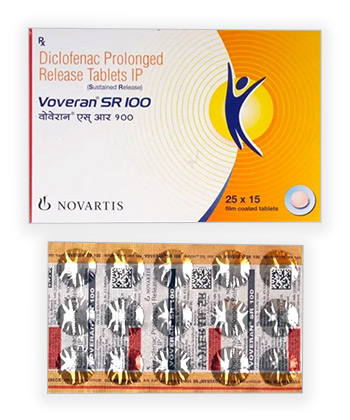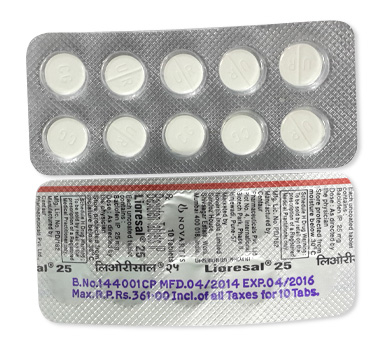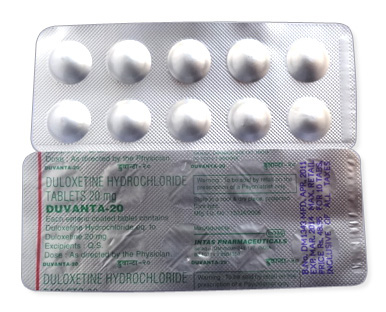Benemid
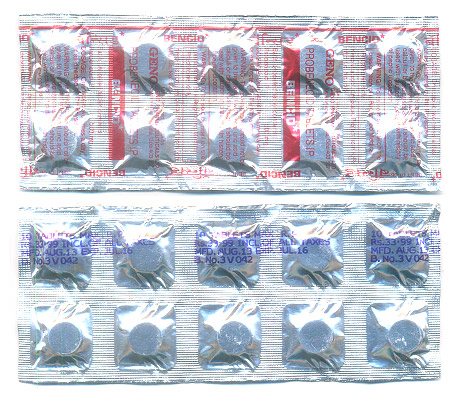
Benemid
- In our pharmacy, you can purchase Benemid (probenecid) without a prescription, with worldwide delivery in 5–14 days. Discreet and secure packaging ensures confidentiality.
- Benemid treats chronic gout/hyperuricemia by inhibiting uric acid reabsorption in kidneys, increasing its excretion. It also prolongs antibiotic effectiveness when combined with penicillin/ampicillin.
- The usual dosage starts at 250 mg twice daily for one week, increasing to 500 mg twice daily for maintenance. Maximum daily dose is 2 grams.
- Administered orally as 500 mg tablets.
- Onset of action begins within 2–4 hours after ingestion.
- The duration of action is approximately 8–12 hours per dose.
- Avoid alcohol consumption, as it increases the risk of gout flare-ups and side effects.
- The most common side effects include nausea, headache, vomiting, and loss of appetite.
- Would you like to try Benemid without a prescription today?
Basic Benemid Information
| INN (International Nonproprietary Name) | Probenecid |
| Brand names in Australia | Probalan®, generic probenecid formulations |
| ATC Code | M04AB01 (Musculo-skeletal system → Antigout preparations) |
| Forms & dosages | Tablets (500mg standard, 250mg rarely available) |
| Australian manufacturers | Generic suppliers like Teva and Apotex |
| Registration status | TGA-approved (Schedule 4 prescription medicine) |
| OTC/Rx classification | Prescription-only medication |
While the Benemid brand name was discontinued in the US, Australian patients can access the same active ingredient through the Probalan brand or generic probenecid tablets. These are regulated under the Therapeutic Goods Administration as schedule 4 prescription medicines, meaning they require a doctor's prescription. Benemid alternatives in Australia exclusively come in oral tablet form, with 500mg tablets being the standard strength dispensed by pharmacies.
The ATC classification M04AB01 specifically categorizes probenecid as a uricosuric agent under antigout preparations. This medication works differently than common alternatives like allopurinol by increasing uric acid removal through the kidneys rather than reducing its production. Major pharmaceutical companies no longer produce branded versions, but generic manufacturers supply the Australian market through standard pharmacy channels.
How Benemid Works: Uricosuric Action
Benemid operates by targeting kidney function to manage uric acid levels. After oral administration, it blocks URAT1 transporters in the kidney's proximal tubules within 30-120 minutes, reducing uric acid reabsorption into the bloodstream. This specific renal excretion pathway causes excess uric acid to leave the body through urine instead of accumulating in joints.
The medication's effectiveness fluctuates throughout the day since it has a dose-dependent half-life ranging from 4-17 hours. This variability requires consistent twice-daily dosing to maintain effective urate-lowering activity. Patients experience peak blood concentration about 2-4 hours after ingestion, with food potentially slowing absorption but not reducing overall effectiveness.
Important medication interactions significantly impact Benemid's function. Salicylates (like aspirin) directly oppose its uricosuric effect, making them incompatible. Conversely, Benemid elevates blood concentrations of penicillins and related antibiotics by reducing their renal elimination - a property sometimes used strategically in infection treatment. The drug also dangerously increases methotrexate levels, requiring strict monitoring if combined.
Approved And Off-Label Uses Of Benemid
The Therapeutic Goods Administration approves Benemid-type medications for two primary purposes: preventing recurrent gout attacks in chronic gout management, and treating hyperuricaemia (persistent high uric acid levels). Australian guidelines emphasize its use as a preventive therapy rather than acute attack treatment, as it doesn't relieve immediate gout pain.
Some specialists prescribe probenecid off-label at high doses for pediatric neuroblastoma cases to enhance chemotherapy effectiveness. More commonly, doctors use it off-label to extend antibiotic activity by delaying penicillin elimination, allowing longer antibacterial action per dose. These applications follow specific protocol-based dosing different from standard gout treatment.
Significant population restrictions apply: Benemid carries a TGA pregnancy category C rating (risk cannot be ruled out) and is avoided during pregnancy unless critically necessary. It's contraindicated for children under 2 years due to immature kidney function. Most importantly, starting therapy during an active gout flare can worsen symptoms - treatment should begin only between attacks.
Benemid Dosage Protocols And Adjustments
| Condition | Standard Regimen | Maximum Daily |
|---|---|---|
| Chronic gout | Start 250mg twice daily for 1 week, then increase to 500mg twice daily | 2 grams |
| Antibiotic adjunct | 500mg four times daily timed with antibiotic doses | 2 grams |
Dosage escalation follows specific safety rules: after initial gout dosing, doctors increase by 500mg increments monthly only if uric acid targets aren't met, with frequent blood tests monitoring response. Maximum daily exposure caps at 2 grams due to diminishing returns and increased side effect risks at higher doses.
Renal impairment drastically alters Benemid suitability. The medication becomes ineffective when creatinine clearance drops below 30mL/min and is avoided entirely in severe kidney disease. Elderly patients typically start at the lower 250mg twice daily regimen with strict kidney function monitoring. Pediatric dosing for niche applications follows specialized protocols starting at 25mg/kg/day in divided doses, always supervised by specialists.
Australian Alternative Medications Comparison
Confused about gout treatments? Let's break down how Benemid compares to other common Australian options.
| Medication | How It Works | Monthly Cost Range (AUD) | PBS Status |
|---|---|---|---|
| Benemid (Probenecid) | Uricosuric (Helps kidneys remove uric acid) | $18 - $32 | Partial Benefit |
| Allopurinol (e.g., Zyloprim) | Xanthine Oxidase Inhibitor - XOI (Reduces uric acid production) | $12 - $25 (PBS subsidised) | Full Benefit |
| Febuxostat (e.g., Uloric, Adenuric) | Xanthine Oxidase Inhibitor - XOI (Reduces uric acid production) | $48 - $95 | Restricted Benefit (Authority Required) |
Why does this matter? Clinical guidelines here (from organisations like the Royal Australasian College of Physicians - RACP) generally recommend allopurinol as the first-choice preventative treatment for most people with gout needing long-term uric acid management. Its strong track record and PBS subsidy keep it accessible. Benemid remains a viable alternative, especially if allopurinol isn't tolerated. Febuxostat works similarly but carries stricter prescribing rules under the PBS due to potential cardiovascular considerations and higher costs.
Australian Access & Pricing Intelligence
Looking for Benemid? Here's the Australian practicalities.
Where to find it: Benemid itself isn't widely stocked on pharmacy shelves anymore. You'll typically need your GP to prescribe it, then your pharmacist can order it in. Major chains like Chemist Warehouse or TerryWhite Chemmart handle these special orders routinely. Generic probenecid brands are increasingly available. Most common packaging is blister packs - easier for dispensing and compliance.
Pricing Insights: Expect costs around $0.15 to $0.30 per tablet. This variability stems from pharmacy retail margins and whether you're getting generic probenecid or sourcing a specific brand (if still available). Over recent years, demand has been relatively steady, though pharmacists note minor seasonal spikes – often aligning with summer months where dietary changes and dehydration might trigger gout flares.
Cost Saving Tip: Prices can fluctuate between pharmacies. Comparing reputable online dispensaries like Chemist4U and PharmaOnline against your local pharmacy's quote is often worthwhile, especially before committing to a long-term script.
Emerging Research (2020-2025)
Beyond gout, researchers are exploring exciting new possibilities for probenecid (Benemid's active ingredient). Areas showing promise include:
- **Antiviral Repurposing:** Laboratory studies suggest probenecid might interfere with SARS-CoV-2 virus replication. Findings published in journals like Cell (2023) show intriguing in-vitro results, though human trials are needed before any clinical recommendations.
- **Neuroprotective Potential:** Active research, including Phase II trials led by groups like Australia's CSIRO in 2024, is investigating whether probenecid offers protective effects against neurodegenerative conditions like Parkinson's disease.
- **Focused Formulations:** Australian researchers are involved in trials like Quvaxail™, a high-dose, modified-release probenecid formulation under development specifically for Alzheimer's disease.
On the market front, patents related to probenecid have long expired. Generics dominate, leading to high market penetration estimated around 87%. This shift makes the active ingredient broadly accessible for both ongoing gout treatment and potential future applications.
Australia-Specific FAQs
Common Aussie questions about Benemid usage:
- **Does Benemid affect fertility?** There's no solid clinical evidence showing Benemid harms fertility. However, if conception is a major concern, discussing sperm tests with your GP might offer reassurance.
- **Can I have wine while taking Benemid for gout?** Alcohol is strongly discouraged. It directly undermines Benemid's uric acid-lowering effect and is a well-known trigger for gout flares. It's best avoided completely.
- **Is Benemid available at Woolworths pharmacies?** No. Benemid (probenecid) is a Schedule 4 Prescription Only Medicine. You'll need a valid prescription from your doctor, which can be filled at Woolworths pharmacies and most other dispensaries, but you can't buy it over the counter.
- **Can I drive after taking Benemid?** Benemid doesn’t typically cause drowsiness that affects driving. However, everyone reacts differently. Be cautious initially until you are sure how it affects you.
- **Is Benemid covered by the PBS?** Only partially. While Benemid itself isn't PBS listed, generic probenecid attracts a PBS subsidy for indicated uses, reducing your out-of-pocket cost.
*(Points drawn from reliable Australian sources like the TGA's therapeutic goods info database and verified community health forums).*
Guidelines for Proper Use
Using Benemid safely and effectively in Australia hinges on following key recommendations:
- **Optimal Scheduling:** Take doses roughly 12 hours apart (e.g., morning and evening). Taking Benemid on an empty stomach enhances absorption.
- **Watchful Waiting:** Don't start Benemid during an acute gout flare. Your doctor will coordinate starting it once the flare settles to prevent worsening symptoms.
- **Interaction Alert:** Crucially, combining Benemid/probenecid with regular high-dose NSAIDs (like ibuprofen or naproxen) or certain types of diuretics ('water pills') needs careful management and doctor oversight.
- **Dietary Considerations:** While less restrictive than older approaches, moderately limiting purine-rich foods (organ meats, shellfish, oily fish like anchovies, excessive eggs) helps support the medication's effect.
- **Essential Regular Checks:** Routine monitoring isn't optional:
- Serum uric acid levels: Tested approximately every 3 months – the target is keeping urate consistently below 6.0mg/dL (0.36 mmol/L).
- Kidney function: Assessed through blood and urine tests at least twice a year.
- **Hydration Priority:** Drink plenty of fluids daily (8 glasses of water is often a good starting point) to help prevent kidney stone formation.
- **Correct Storage:** Keep Benemid/probenecid tablets in their original pack, secured tightly, within a cool, dry cabinet/drawer. Avoid humid spots like bathrooms.
Remember: Despite its long history since the 1950s, Benemid/probenecid remains a potent prescription medicine requiring careful management – it's not an over-the-counter remedy.

